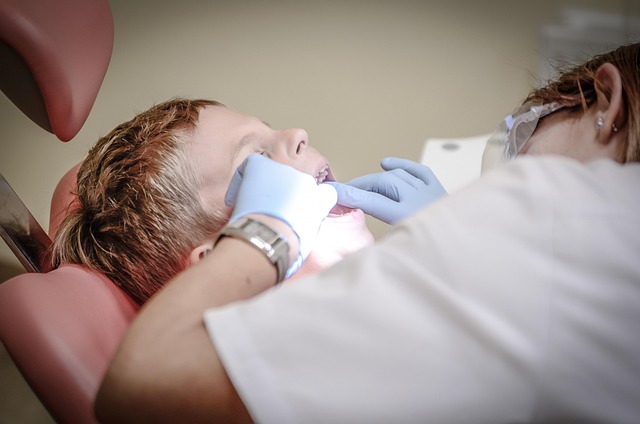What Are the Early Signs of Tinnitus That Often Go Unnoticed?
Tinnitus affects millions of people worldwide, yet many individuals fail to recognize its early warning signs until the condition becomes more pronounced. This persistent ringing, buzzing, or humming in the ears can start subtly, making it easy to dismiss as temporary or insignificant. Understanding these initial symptoms is crucial for early intervention and effective management of this common auditory condition.

Many people experience occasional ringing in their ears after attending a loud concert or being exposed to sudden noise, but when does this become a sign of something more persistent? Tinnitus often develops gradually, with early indicators that are easily overlooked or attributed to other causes. Recognizing these subtle warning signs can make a significant difference in managing the condition effectively and preventing it from worsening over time.
Common Symptoms Associated With Tinnitus
The hallmark of tinnitus is the perception of sound when no external noise is present. While many people associate tinnitus with a high-pitched ringing, the condition can manifest in various ways. Some individuals hear buzzing, hissing, whistling, or even a roaring sound. These sounds may be constant or intermittent, and they can occur in one or both ears. In the early stages, the sounds might be so faint that they are only noticeable in quiet environments, such as when trying to fall asleep at night. Other early signs include a feeling of fullness in the ear, slight hearing difficulties in noisy environments, or increased sensitivity to certain sounds. Some people also experience a clicking or pulsing sensation that matches their heartbeat, known as pulsatile tinnitus. These symptoms can be easily dismissed as fatigue or stress-related, but they warrant attention if they persist for more than a few days.
Understanding The Connection Between Hearing Loss And Tinnitus
Tinnitus and hearing loss often go hand in hand, with research suggesting that approximately 90 percent of people with tinnitus also have some degree of hearing impairment. The connection lies in the way our auditory system processes sound. When hair cells in the inner ear become damaged due to age, noise exposure, or other factors, they may send incorrect signals to the brain. The brain interprets these faulty signals as sound, resulting in the perception of tinnitus. In the early stages, hearing loss may be so minimal that it goes unnoticed in daily life, but the tinnitus symptoms can still be present. People might find themselves asking others to repeat themselves more often, struggling to follow conversations in crowded spaces, or turning up the volume on electronic devices. These subtle changes in hearing ability, combined with phantom sounds, are strong indicators that the auditory system is experiencing stress or damage. Early recognition of this connection is essential because addressing hearing loss through hearing aids or other interventions can often reduce tinnitus symptoms significantly.
Expert Insights On Early Diagnosis Of Tinnitus
Healthcare professionals emphasize the importance of seeking evaluation as soon as tinnitus symptoms appear, particularly if they persist beyond a few weeks. An early diagnosis allows for a comprehensive assessment of the underlying causes, which can range from earwax buildup and ear infections to more serious conditions like Meniere’s disease or acoustic neuroma. Audiologists typically conduct a series of tests, including hearing assessments, tympanometry to evaluate middle ear function, and sometimes imaging studies to rule out structural abnormalities. Experts note that many people delay seeking help because they assume tinnitus is untreatable or simply a normal part of aging. However, early intervention can prevent the condition from becoming more intrusive and can identify treatable causes that might otherwise be missed. Medical professionals also stress the importance of documenting when the tinnitus started, what it sounds like, whether it affects one or both ears, and any accompanying symptoms such as dizziness or hearing loss. This information helps create a clearer picture of the condition and guides appropriate treatment strategies.
Lifestyle Changes That May Alleviate Tinnitus Symptoms
While there is no universal cure for tinnitus, various lifestyle modifications can help reduce its impact and prevent it from worsening. Protecting your ears from loud noise is paramount, as continued exposure can exacerbate symptoms. Using earplugs at concerts, limiting headphone volume, and taking breaks from noisy environments can all make a difference. Managing stress levels is equally important, as stress and anxiety can amplify the perception of tinnitus. Techniques such as mindfulness meditation, yoga, and regular exercise have shown promise in helping individuals cope with the condition. Diet and sleep habits also play a role. Reducing caffeine and alcohol intake, maintaining a consistent sleep schedule, and avoiding complete silence by using white noise machines or fans can help mask tinnitus sounds and make them less noticeable. Some people find relief through sound therapy, which involves listening to specific sounds or music designed to retrain the brain’s response to tinnitus. Cognitive behavioral therapy has also proven effective in changing the emotional response to tinnitus, making it less distressing even if the sound itself remains present.
When To Seek Professional Help For Tinnitus
Knowing when to consult a healthcare provider is crucial for anyone experiencing tinnitus symptoms. Immediate medical attention is warranted if tinnitus appears suddenly in one ear, is accompanied by hearing loss, dizziness, or facial weakness, or if it follows a head injury. These could indicate serious underlying conditions requiring urgent evaluation. For less acute cases, it is advisable to see a doctor if tinnitus persists for more than two weeks, interferes with daily activities or sleep, causes significant distress or anxiety, or is accompanied by pain or discharge from the ear. A general practitioner can perform an initial assessment and refer you to an ear, nose, and throat specialist or audiologist for further evaluation. In the Netherlands, healthcare providers are well-equipped to diagnose and manage tinnitus, with access to modern diagnostic tools and treatment options. Many people benefit from a multidisciplinary approach involving audiologists, psychologists, and sometimes physical therapists, particularly if the tinnitus is related to jaw problems or neck tension. Early professional intervention not only addresses the physical aspects of tinnitus but also provides emotional support and practical strategies for managing the condition long-term.
Recognizing the Subtle Warning Signs
Beyond the obvious auditory symptoms, tinnitus can manifest through behavioral and emotional changes that often go unrecognized. People in the early stages might notice increased irritability, difficulty concentrating, or a reluctance to be in quiet spaces. Some individuals develop a habit of constantly having background noise, such as keeping the television or radio on, to avoid noticing the internal sounds. Sleep disturbances are particularly common, with people taking longer to fall asleep or waking frequently during the night. These secondary effects can significantly impact quality of life and may develop before the person fully acknowledges the presence of tinnitus. Family members and friends might notice these changes before the affected individual does, making external observation valuable. Paying attention to these behavioral shifts, along with the physical symptoms, provides a more complete picture of early-stage tinnitus and underscores the importance of comprehensive evaluation and support.
This article is for informational purposes only and should not be considered medical advice. Please consult a qualified healthcare professional for personalized guidance and treatment.




